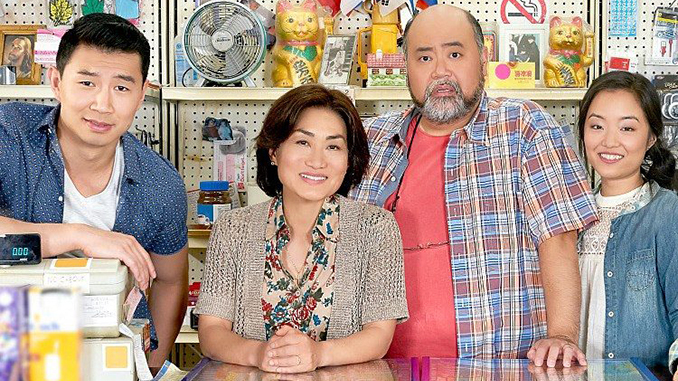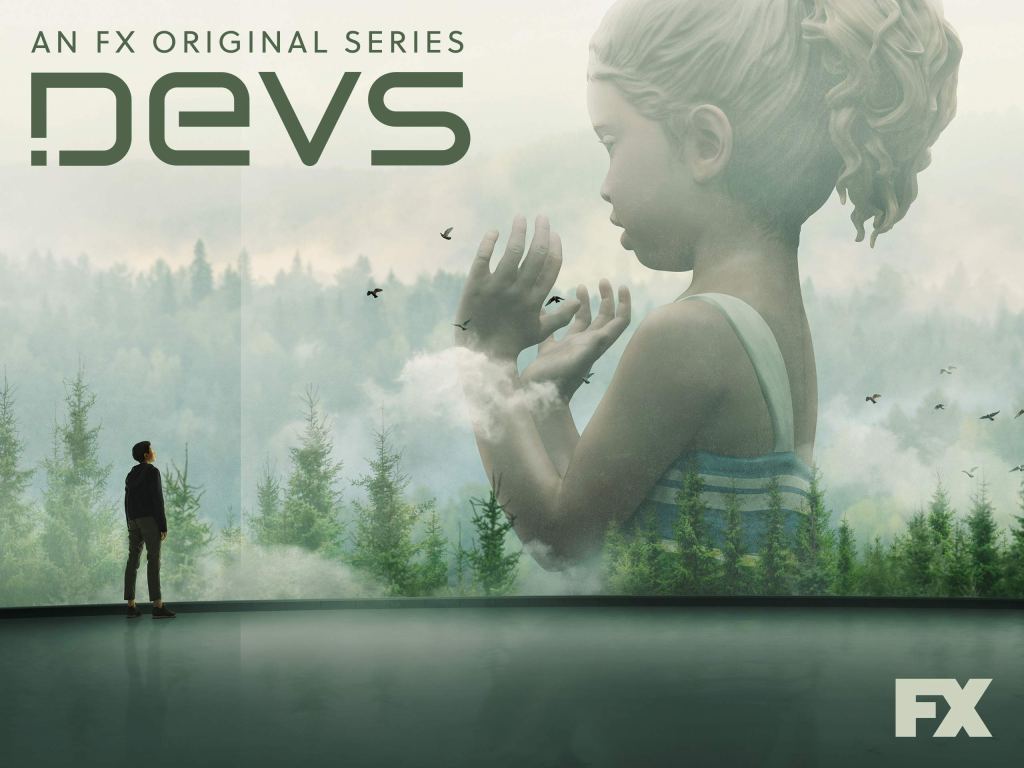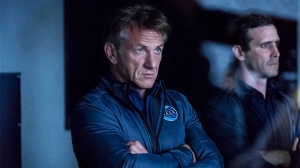Following on from my post last month covering my favourite new shows of 2020, here are the recurring shows that continued to impress with their later seasons in 2020.
Kim’s Convenience, Season 4 (13 episodes, Netflix): I almost never watch comedy shows although I grew up loving classic UK sitcoms like Fawlty Towers, Some Mothers Do ‘Ave ‘Em and Mind Your Language. By some unexplainable impulse early last year, I clicked on Netflix’s recommendation to watch Kim’s Convenience and was hooked. I started with Season 1 and raced my way through 52 episodes to the end of 2020’s Season 4 in the space of a few weeks. It was the perfect stress reliever in the early days of the pandemic lockdown. Based on creator Ins Choi’s 2011 play of the same name, the show is set in Toronto and features a middle-aged Korean immigrant couple who run the eponymous convenience store and manage a sometimes-thorny, but always well-intentioned relationship with their estranged son and college-going daughter. The show insightfully and compassionately addresses themes of love, familial duty and integrity through the relational dynamics of the family members and their friends. All six regular cast members representing the Kim family – “Appa” (Paul Sun-Hyung Lee), “Umma” (Jean Yoon), Janet (Andrea Bang) and Jung (Simu Liu), as well as Jung’s best friend “Kimchee” (Andrew Phung) and his boss, Shannon (Nicole Power) are at the top of their game and hilarious in their own way. Fans of The Mandalorian would have rubbed their eyes in disbelief to see Paul Sun-Hyung Lee pop up in a couple of episodes in Season 2. And Simu Liu will next be seen in the lead role of Marvel’s Shang-Chi and Legend of the Ten Rings. Season 5 of Kim’s Convenience (which will be its last) has just aired in Canada and I’m looking forward to it arriving on Netflix for international viewers.

The Boys, Season 2 (8 episodes, Amazon Prime): Based on Garth Ennis’ irreverent and violent graphic novel series, this small-screen adaptation by Eric Kripke stays true to its source material and provides a hard-hitting deconstruction of the superhero genre and a scathing commentary on corporate greed. The show portrays a world filled with superheroes, most of whom are employed by the corrupt Vought International conglomerate, which manages (i.e., controls) their public profiles, private lives, assignments and team affiliations, while exploiting their monetary potential through celebrity endorsements, reality shows and movies…imagine an extreme version of Hollywood studios in the 40’s and 50’s. Most of the superheroes are hooked onto the power and influence, willingly cynical and corruptible. A small group of vigilantes, armed only with determination, cunning and a sense of righteousness, take it upon themselves to bring down Vought, specifically targeting their A-list superhero group The Seven, led by the psychopathic Homelander (played by Anthony Starr). The vigilantes themselves carry deep emotional scars resulting from the collateral damage of past actions by Vought and the superheroes. The show grabs the viewer by throat and never lets go, every episode a roller coaster of graphic violence, elements of the blackest comedy, unsettling scenes and shocking plot twists…this is not a show for the squeamish. Season 2 raises the stakes for the vigilantes, particularly team leader Billy Butcher (Karl Urban) and team noob Hughie Campbell (Jack Quaid, son of Dennis Quaid and Meg Ryan), while The Seven’s newest team-member Stormfront (Aya Cash) turns out to be just as much an evil sociopath as Homelander. The season ends with another cliffhanger, revealing a new threat to The Boys. Filming for the third season is scheduled to end in September 2021, so I’m hopeful we will see it on screen by the end of the year.
The Chef Show, Season 2, volume 1 (5 episodes, Netflix): This cooking show is a must-watch for fans of Jon Favreau’s 2014 film Chef, in which he played a washed-up chef who re-discovers his love for cooking and reconnects with his young son while on a road trip in a refurbished food truck. Favreau’s co-producer and food consultant on that film was Roy Choi, a Korean-American who created Kogi, the highly celebrated fleet of Korean-Mexican gourmet food trucks that operates in Los Angeles. Favreau and Choi teamed up to produce and host this good-natured and highly watchable cooking show that premiered on Netflix in June 2019. Season 1 was split into 3 volumes totaling 20 episodes, and ended in February 2020. Season 2 aired its first volume of 5 episodes in September 2020. Season 1 episodes notably featured Gwyneth Paltrow, Seth Rogen, the cast of The Avengers, director Robert Rodriguez, restaurateur David Chang (who hosts Ugly Delicious on Netflix) and celebrity chef Wolfgang Puck. In Season 2, the focus shifts to pure-play chefs such as Christina Tosi, Jessica Largey, Chad Robertson & Chris Bianco and Nina Subhas. What’s really enjoyable besides watching the food being cooked and eaten with great relish, is the close camaraderie between Choi and Favreau – master and padawan – with Favreau showing an immense natural ability, especially with food preparation. Also, look out for the eye-popping stop-motion animation used for the show’s intro and to illustrate the ingredients of each dish.
The Mandalorian, Season 2 (8 episodes, Netflix): Speaking of Jon Favreau brings me to The Mandalorian, which headlined the launch of the Disney+ streaming service at the end of 2019. It quickly became popular for the achingly cute little creature nicknamed “The Child” or “Baby Yoda” (his true name was revealed this season). Season 2 continued the adventures of Din Djarin, the permanently masked Mandalorian (played by Narcos and Game of Thrones alum Pedro Pascal) as he seeks to return Baby Yoda to the Jedi community that he was stolen from. Besides the cuteness of Baby Yoda, I love this show because it harks back to the classic TV shows of the 60’s in which the heroes are good and villains are bad, with no irritating types thrown in. Din Djarin is driven by a pure instinct to protect The Child and is assisted by various people with similar good intentions. Guest stars in Season 2 include Timothy Olyphant, Rosario Dawson, Michael Biehn and Katee Sackhoff. The show uses a cutting edge technology called Unreal Engine to create virtual backgrounds on high-res LED screens that are indistinguishable from the real thing, eliminating costly outdoor location shoots. After the disappointments of recent Star Wars feature films, this show is a welcome return to form for the franchise, with hard-core fans getting their kicks every now and then through the appearance of well-known characters from the Star Wars canon.
Westworld, Season 3 (8 episodes, HBO): I missed the boat on this high profile show when it kicked off in 2016, but started watching it last year soon after the third season aired. Produced by Jonathan Nolan (Christopher’s brother) and Lisa Joy, it’s an extraordinary achievement with a vast and ambitious narrative scope, employing a talented, high profile cast and cutting edge visual effects. While it’s based loosely on the 1973 scifi thriller written and directed by novelist Michael Crichton, this version has been updated for the AI age and at its heart, questions what it truly means to be a human; some of the androids in the story exhibit greater humanity than the real people who run the theme park. The show really challenged me to keep track of the narrative twists and turns, the time jumps and eventually, even who was human and who was android. I’m thankful that I watched all the episodes in quick succession, otherwise on a regular release timeline, I would have struggled to keep up. Season 3 jumps the shark a bit, and I confess, I lost momentum after the first 2-3 episodes, but I intend to go back and finish it, given it’s highly likely there will be a Season 4 (although that’s not official yet and may take a couple of years to complete).
Yellowstone, Season 3 (10 episodes, Paramount): I wrote about this show when it first came out in 2018 and the stakes just keep getting higher for John Dutton (Kevin Costner) and his family in seasons 2 and 3. Although Kevin Costner is the headline actor on the show, the majority of the screen time is taken up by the next generation of Duttons, the fiercely protective, but emotionally volatile daughter Beth (Kelly Reilly), idealistic younger son Kayce (Luke Grimes) and his native American wife Monica (Kelsey Asbille), politically ambitious but spineless older son Jamie (Wes Bentley). Other standout characters include loyal ranch foreman Rip Wheeler (Cole Hauser, in the role of a lifetime) and Chief Rainwater (Gil Birmingham), the politically astute leader of the native Americans living on the adjacent reservation. When a family owns the largest contiguous ranch in the US, you know that the plot is always going to be about people wanting to take the land away from them. After facing off challenges from real estate moguls, property developers and white supremacist groups, Season 3 finds the Dutton family up against a ruthless equity firm that wants to buy up a big chunk of the ranch for an airport; it ends with an explosive finale and a cliffhanger to set up Season 4. Meanwhile, I’m excited about the prequel series named Y: 1883 that creator-writer Taylor Sheridan is developing, which will be on the newly launched Paramount+ streaming network some time in 2021.
Call My Agent!, Season 4 (6 episodes, Netflix): This wonderful show can be considered the French equivalent to HBO’s Entourage. It chronicles life at a fictitious talent agency, Agence Samuel Kerr (ASK), in Paris which manages a number of top French movie stars. The storylines focus on the four talent agents, their assistants and the agency’s CEO. A key feature is the appearance in every episode of a well known French star playing herself or himself. The storylines provide plenty of opportunities for high drama, and the talented ensemble cast are equally adept at subtle expressions and over-the-top histrionics. The show is created by Fanny Herrero, with celebrated director Cédric Klapisch playing a key role as co-producer. It’s great fun to see stars playing themselves, sometimes in pretty ridiculous storylines which poke fun at their own quirks and foibles…among my favourites were Cécile de France and Audrey Fleurot in season 1, Fabrice Luchini, Isabelle Adjani and Juliette Binoche in season 2, Jean Dujardin and Monica Bellucci in season 3 and Sigourney Weaver in season 4.
The only recurring show on my wishlist that I haven’t been able to watch yet is the second season of His Dark Materials on HBO; I look forward to catching up with that soon. That about covers it for 2020 in terms of my favourite mini-series, newly launched shows and this latest post on recurring shows. The new year has kicked off on a promising note with second seasons of Snowpiercer (Netflix) and For All Mankind (AppleTV+) respectively. I’m also looking forward to watching the new show Lupin on Netflix.























